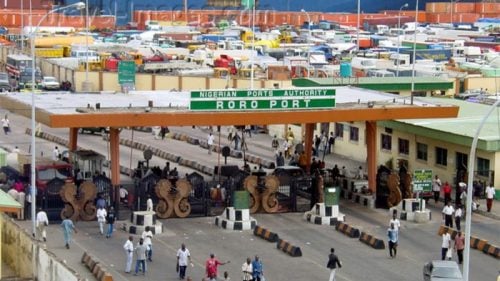
The Federal Ministry of Transportation has urged the Nigerian Ports Authority to ensure that the Nigerian Shippers Council is involved in the Port Concession Agreement currently under review.
The Permanent Secretary, Federal Ministry of Transportation, Dr Magdalene Ajani, said this recently at a one-day sensitisation meeting organised by the FMOT in collaboration with NSC themed, “Promoting Competitiveness & Compliance in Nigerian Maritime Industry: Mandate of the NSC in Focus.”
She explained that while NPA was the technical operational regulator, the NSC was interim economic regulator of the ports.
“Consequently, the Shippers Council’s port economic regulatory mandate and roles should be reflected in the Port Concession agreement under review and other subsequent agreements.”
Ajani, who is also the chairman of the occasion, noted that the ministry was aware that the shippers’ council had faced resistance from relevant stakeholders in the maritime industry in the earlier stages of the implementation of the economic regulator regulation.
“It is noteworthy that prior to the appointment of the Council as an interim port economic regulator, there was no known authority saddled with the responsibility of checkmating the commercial activities at the port. I also want us to note that while NSC is the port economic regulator, the Nigerian Ports Authority remains the technical operational regulator. This is very key so that we understand the distinct role between the two agencies and stakeholders give their support and cooperation to them.”
Dr Ajani informed the gathering that the Nigerian Shippers’ Council was appointed as the interim port economic regulator in 2014 as a government response to fill the vacuum and address the challenges facing the port system.
According to her, the major objective of the government in appointing the Nigerian Shippers’ Council as the interim port economic regulator was to create an effective regulatory regime at the port for the control of tariffs, charges and other related economic services by the virtue of economic regulatory order No 34 of 2015 issued by the President in pursuant to section 5 and 145 of the 1999 Constitution as gazetted.
While calling for the support and cooperation of all stakeholders, Ajani said the ministry was working on stakeholders’ concerns and implementation of some of the suggestions made in the past in order to bring out the best options in collaborating actively with agencies outside the Federal Ministry of Transportation.
“In line with the sub-existing order on the port economic regulation, as issued by the President of the Federal Republic of Nigeria, I hereby reaffirm that the NSC remains the interim Port economic regulator in our nation’s ports pending the establishment and operationalisation of the National Transport Commission as an independent regulatory authority in the transport sector,” Ajani noted.
On his part, the Managing Director of the NPA, Mr Mohammed Bello-Koko, said the NSC had come into a tight-packed sector of government, which was the maritime industry, adding that all stakeholders needed to adjust and accommodate its regulations which were already backed up by law.
Bello-Koko, who was represented at the event by the NPA legal secretary, Mr IG Umar, charged the council to make more efforts in extending the competitiveness of Nigerian port operations to the world. He also thanked the Federal Ministry of Transport for its immense support for the growth and empowerment of the NSC.





